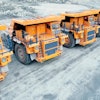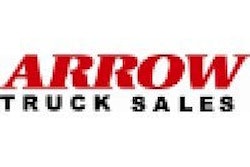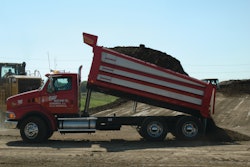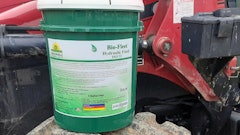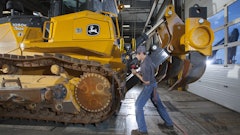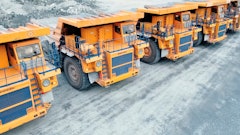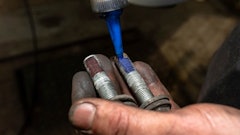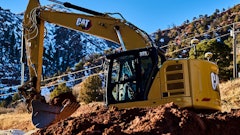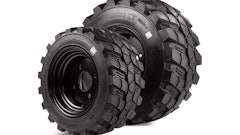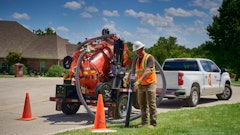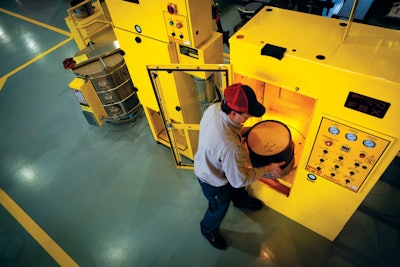
You may recall when the EPA mandated that, starting in 2007, all new on-highway diesel engines must limit the emission of particulate matter. To comply with this regulation, equipment makers incorporated diesel particulate filters (DPFs) as part of a comprehensive emissions control system. DPFs trap diesel particulates (soot) in the engine’s exhaust through an extensive filtering process. The particulate matter collected is then oxidized to remove it from the DPF.
At the same time, ultra-low sulfur fuel (ULSD) was introduced for use in 2007 or later model-year diesel vehicles. A cleaner-burning diesel fuel that contains 97% percent less sulfur than low-sulfur diesel, ULSD was developed to allow the use of the pollution-control devices that reduce diesel emissions more effectively but can be damaged by sulfur.
There were record sales of 2006-model heavy-duty trucks to avoid the 2007s because mandated exhaust aftertreatment increased their cost. Low-mileage 2006 models would be the hot commodity in the used-truck market for years to come.
Today, a look in the rear view mirror can teach us a lot that we didn’t know then about DPFs. The 2006 truck models have now mostly disappeared from use. Those few remaining in service are tired and spent, having racked up millions of miles. DPF trucks are now the norm.
Effective if Properly Maintained
DPF technology is performing its job well when given proper care. No longer do big rigs belch black smoke, leaving the smell of diesel fuel in their wake. DPF-equipped trucks run quieter. And many fleets report fuel efficiency gains from 3% to as high as 5% when DPFs are cleaned regularly.
“Engineers have worked very hard over a long period of time to reduce emissions while preserving the efficiencies and advantages of the diesel engine,” says John Wall, vice president and chief technical officer for Cummins.
Problems initially experienced by many fleets were due mainly to failing to properly care for the filters. When you add a DPF and diesel oxidation catalyst (DOC) to a diesel engine, the only thing you can depend on is unscheduled downtime if you don’t clean the DPF on a regular, proactive schedule. Experience has shown that without proper cleaning, the DPF works fine until it cracks, sinters, melts or just plain gets plugged with soot or hardened ash.
In general, for heavy-duty trucks using low-ash oil, the DPF should be cleaned once annually or every 150,000 miles (less for severe-service applications). For medium-duty trucks using low ash oil, cleaning should be every 75,000 miles. These intervals can vary depending on application. (Check the service manual for specific recommendations for your vehicles or equipment.) Ash left longer in the DPF begins to set up and harden, making cleaning difficult.
DPFs should be “inspected and verified suitable for re-use,” advises David McNeill, parts and service manager at Cummins Service Solutions. DPFs that are improperly cleaned or not cleaned at regular intervals are most likely to require replacement.
“[Filters cleaned at proper intervals] result in improved DPF reliability and durability, as well as reduce the likelihood of frequent regenerations (combustion at high temperatures of the particulate matter within the filter) and associated downtime,” McNeill notes.
Does It Pay to Clean In-House?
Prices charged for DPF cleaning range between $350 and $500, depending on location and the cleaning method used. Some manufacturers offer exchange programs in lieu of cleaning, which usually run between $600 and $800 per filter.
It’s been our experience at FSX that it is more cost-effective to own a DPF cleaner rather than contract with a DPF cleaning service when a fleet has at least 100 DPF-equipped units. Such a fleet would pay for the equipment in about one year. The return on investment goes up from there.
DPF cleaning systems have been in use for years now and there are a variety to choose from. Do your homework before purchasing one. Key things to keep in mind include:
- Is the DPF cleaner OEM tested or recommended?
- What is the method of cleaning?
- What are the air compressor size and cubic feet per minute (cfm)/psi rating? (The more powerful the compressor, the more effective and thorough the cleaning.)
- Is the DPF cleaning process visible to the technician? This allows a technician to spot any possible failures, such as cracking.
- Remember, you get what you pay for.
Careful attention needs to be paid to choosing a DPF cleaning service, as well.
What the Future Holds
It’s doubtful that DPF technology will become obsolete anytime soon, as many improvements are being made to diesel emission control systems. Developments include:
- thinner ceramic substrate walls for backpressure reduction;
- changes in microstructure and porosity of the ceramic media to improve filtration efficiency;
- increased ash storage capacity with the use of asymmetrical cell technology;
- and further reduction of nitrogen oxides through the use of NH3 (ammonia) from urea for selective catalytic reduction (SCR) emissions control technologies. This technology can now be incorporated as a coating on the DPF itself to perform the same function as the more traditional separate DOC.
But even with such technological advances, DPFs will only function as designed if they are well maintained. Make sure you follow service recommendations to get maximum performance from your vehicle and equipment fleet.
Drew Taylor is vice president of global marketing for FSX Equipment (www.fsxinc.com). FSX provides filter cleaning systems and services for cleaning diesel particulate filters (DPFs) and industrial filter cartridges utilized in the trucking, transit, off-road, railroad and power generation industries.



